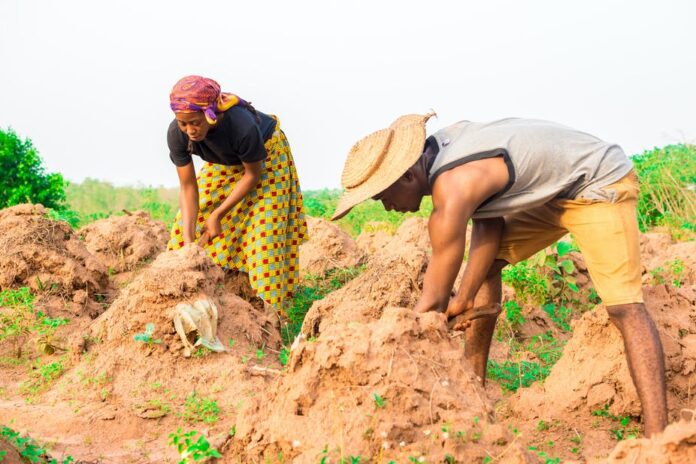By Akanimo Sampson
International Finance Corporation’s (IFC) Country Manager for Madagascar, Marcelle Ayo, says smallholder farmers are often on the front lines of risk and they deserve insurance programmes specifically targeted to meet their needs.
”Agricultural insurance can help them enjoy a more predictable and stable cash flow, enabling them to repay loans and improve credit worthiness, boost production, and build more resilience against natural disasters and other shocks”, the IFC chief said.,
Madagascar’s farmers stand to build stronger climate resilience, increase productivity, and more easily access financial services thanks to an agricultural insurance program announced today by IFC and the government of Madagascar.

IFC, a member of the World Bank Group will under the programme help Malagasy insurance companies develop targeted insurance products to protect farmers from weather-related risks and other natural disasters that threaten their livelihoods and undermine creditor confidence.
Agricultural insurance will help protect farmers from a wide range of natural disasters, including cyclones, droughts, floods, and pest invasions. Natural disasters cost Madagascar’s economy on average 1 percent of GDP annually.
Agriculture is a significant contributor to Madagascar’s economy, accounting for about a quarter of the country’s GDP and 64 percent of total employment.
Smallholder farmers make up about 70 percent of the farming population, yet more than half cite limited access to financial services as a key constraint holding back their productivity and incomes.
“The Ministry of Agriculture, Livestock and Fisheries is committed to developing agricultural insurance for smallholder farmers to achieve food self-sufficiency as well as accelerated, inclusive and sustainable growth.
”The establishment of an agricultural insurance system is a sustainable solution to develop the agricultural sectors. This will encourage banks and financial institutions to support farmers through access to credit to overcome the risks associated with climate change”, said Fanomezantsoa Lucien Ranarivelo, the Minister of Agriculture, Livestock and Fisheries.
Farmers who are insured often lower their credit risk, easing their access to other financial services, such as loans. This has been shown in countries such as Kenya, Nigeria, and the Philippines, where banks, microfinance institutions, and insurance companies have collaborated to provide bundled services to smallholder farmers.
The Madagascar project is funded by the Global Index Insurance Facility (GIIF), a multi-donor program managed by the World Bank Group created to address the scarcity of affordable insurance protection against weather and catastrophic risks in emerging countries.
GIIF is supported by the European Commission, the African, Caribbean and Pacific (ACP) Group of States, the Netherlands Ministry of Foreign Affairs, the German Federal Ministry of Economic Cooperation and Development (BMZ), and the Japan Ministry of Finance.
IFC is the largest global development institution focused on the private sector in emerging markets. It works in more than 100 countries, using our capital, expertise, and influence to create markets and opportunities in developing countries.
In the fiscal year 2020, we invested $22 billion in private companies and financial institutions in developing countries, leveraging the power of the private sector to end extreme poverty and boost shared prosperity.





